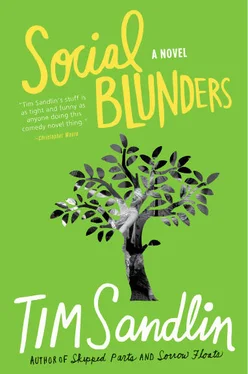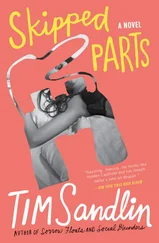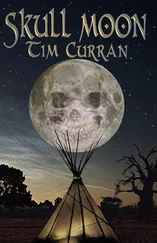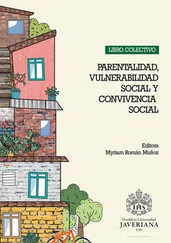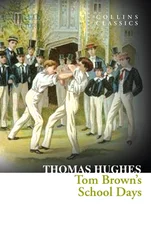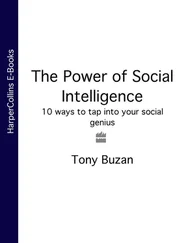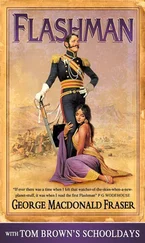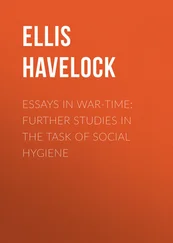Shannon held her cup out to me. I refilled her but ignored Eugene’s similar silent plea.
“After the olden days when you and Mom were active, the scientists invented something called birth control,” Shannon said. I hate tacky kids.
Eugene said, “Shannon has a diaphragm.”
“You went to a doctor and told him you were planning ahead to have sex?”
“Daddy, this is the eighties. Times have changed since you were young.”
“I’m still young.”
Gus did her nostril exhale blast that says it all. “I got a grandpa acts younger than you and he’s in a rest home.”
Eugene smirked into his empty cup. He had no call to come off young and vital; his hairline was already in full retreat. By the time Eugene made thirty he was going to pass for Friar Tuck. I may not have much, but at least I’ve kept my hair.
Gus pushed herself up from the table. “Eat your beans, you’ll feel better.”
“I am not in the mood for red beans.”
“Your father’s pouting again,” Gus said to Shannon.
“I am not pouting, I’m just tired of red beans for breakfast. Why can’t we have biscuits and ham like other rich families with black cooks?”
Gus said, “Racist cracker.”
“Did you meet your fathers?” Shannon asked.
“Why are there two hundred pumpkins in the foyer?”
“Three hundred fifty,” Eugene said. He was eating beans. He seemed perfectly happy to sit at my table in my bathrobe eating my beans. After sleeping in my daughter’s bed. Goldilocks incarnate.
“Did you meet your fathers or not?” Shannon asked.
“Yes, I met them.”
“All five?”
“One’s dead.”
“Which one?” Eugene asked.
“The black guy.”
“Figures,” Gus said.
“And?” Shannon was impatient. I didn’t know what to tell her. The fathers were good, bad, and ugly, like everyone else. They had families and jobs. None were in the CIA or professional baseball, and, so far as I could tell, none had made a career out of rape.
Shannon stared at me. “Did you figure out who’s the real father?”
“Yesterday was the worst day of my life, including the day Wanda left. Confronting the fathers was stupid. Idiotic. I did it because you two made me and now it’s over and buried and I demand to know why there’s three hundred fifty fucking pumpkins in the foyer!”
“Daddy. That’s no way to talk in front of guests.”
***
Another morning at Tex and Shirley’s. I hadn’t eaten a meal cooked by my cook in three days. The waitress with Judy on her name tag recognized me from the day before—asked if I wanted cheese blintzes again. I said, “Sure thing,” without thinking because I was still going over what I should have said during the conversation back home. Us writer types aren’t good at live conversation. It takes eight drafts for me to sound spontaneous.
What happened was the kids had gone philanthropic at a pumpkin stand on the Blue Ridge Parkway.
“The little ragamuffin behind the counter wasn’t even wearing shoes,” Eugene said. “We had to nurture her somehow.”
“Shannon hardly ever wore shoes when she was a little ragamuffin.”
“We witnessed classic poverty in America. The girl obviously had a vitamin deficiency, and I don’t doubt she’d been physically abused. The vast majority of women in her socio-economic class are physically abused, statistically speaking.”
So Shannon rented a U-Haul trailer and bought out the pumpkin stand.
“Your daughter has a heart of gold,” Eugene said.
Young men speak in clichés; old men live them. “Why not give the girl all your money and let her keep the pumpkins to sell to someone else?” I asked. “Lord knows we don’t need more than one pumpkin.”
“Categorical impoverishment disdains charity,” Eugene said. Shannon wasn’t speaking to me. She does that whenever I won’t cooperate.
“I’ve found people you think won’t accept charity generally will when you word it right.”
Eugene sent me a look like I’m simple and he’s not. “These pumpkin sellers are endemic of the old Appalachian value system which ascribes nobility to poverty, but only in the context of the self-contained family unit, much like John Boy and the Waltons. Charity is viewed as debasement.”
Gus snorted and spoke to Shannon. “Does he talk that way in bed?” I left before Shannon answered.
***
At first I thought the waitress looked like the woman who walked her cat on a leash, then I realized she was the woman who walked her cat on a leash.
When she brought my blintzes, I asked, “Why walk a tied-up cat?”
She looked at me suspiciously, which is nothing new. Waitresses often look at me suspiciously. “Have you been spying on me?”
“I saw your cat yesterday and wondered why you walk her on a leash.”
“You ever try walking a cat without a leash?”
“My cat Alice went outside on her own.”
The waitress put her hand in her uniform pocket, then took it out again. She touched her ear and blinked quickly. “I can’t risk that with Judy.”
I looked at her name tag. “You’re Judy.”
She continued to move her hands nervously. I could tell this was a touchy subject. “Mr. Angusen named Judy after me. Mr. Angusen was my husband, before he caught the emphysema and said he’d rather die than quit Kent cigarettes. He was so crazy about our kitten that he named her after me.”
“My friend Maurey named a horse after her father.”
“Judy is all that’s left. I can’t risk losing her too.”
Made sense to me. “I used to be emotionally dependent on a cat. You reach a point where something outside yourself has to hold you together because you can’t do it on your own anymore, and a pet is the only choice.”
The waitress had sad eyes I hadn’t noticed the day before when I was busy fingering Linda Ronstadt. “What happened to your cat?” she asked.
“Alice got old and died.”
“How did you handle losing her?”
“I got married.”
***
I would never have married Wanda if Alice had lived. Alice was my cat who stuck with me while a score of women didn’t. Alice didn’t care for my women. She made a habit of peeing on panties left on the bedroom floor. I’m convinced several of my one-night stands would have lasted several more nights if the women involved had awoken to dry underwear. Alice was eighteen when her kidneys started to fail, and, for seven months, I injected her twice a day with fifty cc’s of electrolyte fluid. At the end I hand fed her ice for a week as she died. I doubt if I’ll ever get so close to an animal or person again. Intimacy on that deep a level takes too much out of you. After I lost Alice, I wallowed in fuck-and-suck avoidance for a month until Wanda came along, and, in a gush of relief that someone might actually take me for the long run, six weeks after I met Wanda I married her.
Then, ten days less than a year later—game four of the ’83 World Series—Wanda scrammed. She calculated the timing to inflict the highest amount of pain possible; of that I am certain. No woman just happens to leave her husband during the World Series.
***
My first marriage—the one we don’t talk about at family gatherings—lasted eight weeks. I was twenty-five, Leigh was thirty-seven and had just been divorced by her husband of fifteen years, who dumped her for Tammy Faye Bakker’s publicist. He left Leigh with a shattered personality, which I helped her glue back together piece by piece until she was whole enough to leave me for an underwater welder.
She said hurting me “balanced the books.” I asked her why she married me in the first place and she said, “To prove to myself someone still wanted me.”
Читать дальше
